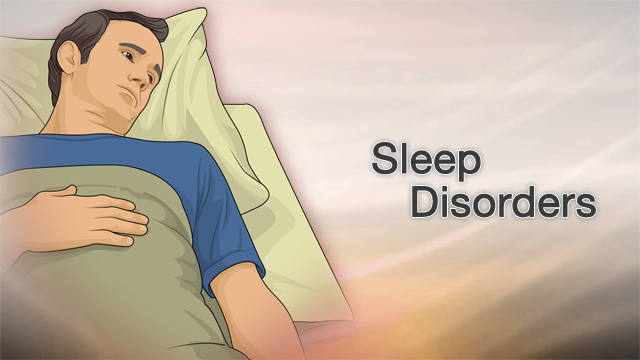Sleep disorders can significantly impact an individual’s quality of life, affecting their overall well-being and daily functioning. As people seek solutions for better sleep, the use of medications like Xanax (alprazolam) often comes into consideration. In this article, we will explore the potential of Xanax as an effective solution for sleep disorders. We will delve into its mechanism of action, examine its short-term benefits, discuss alternative treatments, and highlight important considerations and precautions.
Understanding Sleep Disorders
2.1 Types of Sleep Disorders
Sleep disorders encompass a range of conditions that disrupt the normal sleep pattern. They can include insomnia, sleep apnea, narcolepsy, restless legs syndrome, and more. Each disorder has its unique characteristics and underlying causes, which may require specific approaches for treatment.
2.2 Impact of Sleep Disorders
Sleep disorders can have profound effects on physical, mental, and emotional well-being. They can lead to daytime sleepiness, difficulty concentrating, impaired cognitive function, mood disturbances, and an increased risk of accidents or injuries. Seeking effective treatments is crucial for restoring healthy sleep patterns and improving overall quality of life.
Xanax: An Overview
3.1 How Xanax Works
Xanax, a brand name for the medication alprazolam, belongs to the class of drugs known as benzodiazepines. It acts on the central nervous system to enhance the effects of a neurotransmitter called gamma-aminobutyric acid (GABA), which has a calming effect on the brain. By increasing GABA activity, Xanax helps reduce anxiety, promote relaxation, and induce sedation.
3.2 Xanax for Sleep Disorders
Due to its sedative properties, Xanax is sometimes prescribed off-label to help individuals with sleep disorders. The medication can help initiate sleep, reduce sleep latency (the time it takes to fall asleep), and promote uninterrupted sleep. However, it is essential to understand the potential benefits and risks associated with its use for sleep disorders.
Effectiveness of Xanax for Sleep Disorders
4.1 Short-Term Benefits
In the short term, Xanax may provide relief for individuals struggling with sleep disorders. By promoting relaxation and sedation, it can help individuals fall asleep more easily and stay asleep throughout the night. This can lead to an improvement in sleep quality and the reduction of sleep-related symptoms.
4.2 Potential Risks and Side Effects
While Xanax can offer short-term benefits, it is important to note that it is not a long-term solution for sleep disorders. The use of Xanax for extended periods can lead to dependency, tolerance, and potential side effects such as drowsiness, dizziness, confusion, and impaired coordination. It is crucial to use Xanax under the guidance of a healthcare professional and follow the prescribed dosage.
Alternative Treatments for Sleep Disorders
5.1 Non-Pharmacological Approaches
Apart from medication, non-pharmacological approaches can play a significant role in managing sleep disorders. These can include adopting good sleep hygiene practices, maintaining a consistent sleep schedule, creating a comfortable sleep environment, and practicing relaxation techniques such as deep breathing exercises or meditation.
5.2 Cognitive-Behavioral Therapy for Insomnia (CBT-I)
Cognitive-Behavioral Therapy for Insomnia (CBT-I) is a structured therapeutic approach that addresses the underlying causes of sleep disorders. It involves techniques such as sleep restriction, stimulus control, cognitive restructuring, and relaxation training. CBT-I has shown promising results in improving sleep quality and can be a valuable alternative or complement to medication-based treatments.
Considerations and Precautions
6.1 Dependency and Tolerance
One of the key considerations when using Xanax for sleep disorders is the potential for dependency and tolerance. Benzodiazepines like Xanax have a risk of causing physical and psychological dependency, especially with long-term use. Tolerance may also develop, leading to the need for higher doses to achieve the same sedative effects. It is important to use Xanax as directed by a healthcare professional and be mindful of its long-term implications.
6.2 Individual Differences and Medical Advice
Every individual is unique, and the suitability of Xanax for sleep disorders can vary depending on several factors, including the specific sleep disorder, medical history, and other medications being taken. It is crucial to consult with a healthcare professional who can evaluate your specific circumstances and provide personalized advice on the most appropriate treatment options.
Conclusion
While Xanax may offer short-term benefits for sleep disorders by promoting relaxation and sedation, it is not a long-term solution. Its use should be approached with caution, considering the potential risks of dependency, tolerance, and side effects. Exploring alternative treatments such as non-pharmacological approaches and cognitive-behavioral therapy can provide more sustainable solutions for improving sleep quality and managing sleep disorders in the long run.
Xanax has helped countless individuals regain their peace of mind and live their lives to the fullest. Join the community of satisfied customers who have found solace in this remarkable medication.
FAQs
- Is Xanax a cure for sleep disorders? Xanax is not a cure for sleep disorders but can provide short-term relief by promoting sedation and relaxation. Long-term use of Xanax for sleep disorders is generally not recommended due to the risk of dependency and tolerance.
- Can Xanax be used for all types of sleep disorders? Xanax may not be suitable for all types of sleep disorders. Different sleep disorders have varying underlying causes, and treatment approaches should be tailored accordingly. It is essential to consult with a healthcare professional for an accurate diagnosis and appropriate treatment recommendations.
- What are some common side effects of Xanax for sleep disorders? Common side effects of Xanax can include drowsiness, dizziness, confusion, and impaired coordination. These effects can vary from person to person, and it’s important to monitor their occurrence and discuss any concerns with a healthcare professional.
- Can non-pharmacological approaches alone effectively treat sleep disorders? Non-pharmacological approaches such as good sleep hygiene practices and relaxation techniques can be effective in managing sleep disorders, especially when combined with other treatment modalities. Cognitive-Behavioral Therapy for Insomnia (CBT-I) is a recommended therapeutic approach that has shown promising results.
- What steps should I take if I am considering using Xanax for my sleep disorder? If you are considering using Xanax for your sleep disorder, it is crucial to consult with a healthcare professional. They can evaluate your specific situation, provide an accurate diagnosis, and guide you in determining the most appropriate treatment




